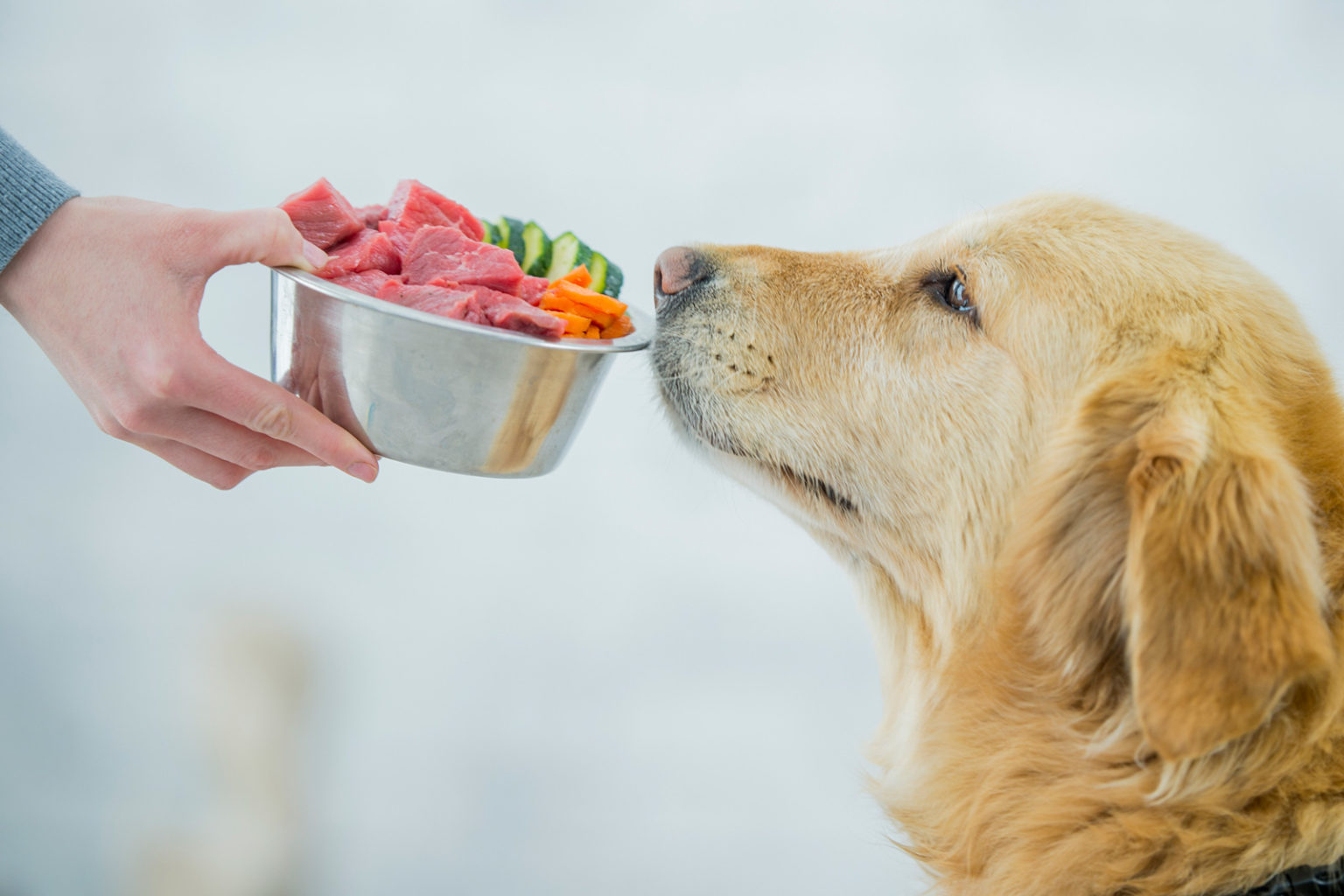
Advertisements
If your dog asks for a bite of your food during meals, you’ve probably wondered which human foods are safe for pups. Here are the 19 healthiest foods you should give to your dog and what to avoid.
1. Fruits
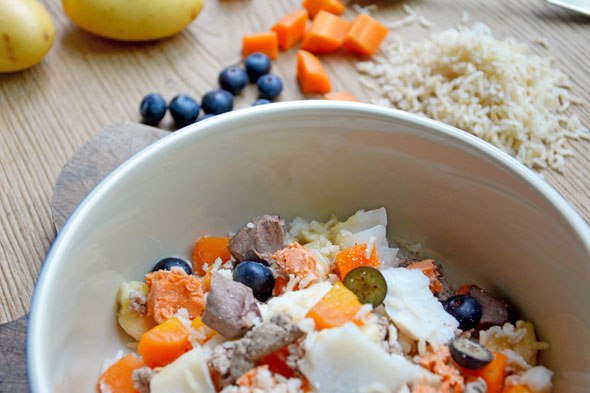
If your dog likes sweet foods, fruits can be an amazing treat. Many fruits are quite nutritious and can provide many benefits for your dog. For example, apples, mangos, pears, bananas, and melons are all great choices. Berries are also incredible because they’re full of antioxidants. They are small, as well, so a few berries make for a perfect treat size. Although fruits are amazing treats, you should still be cautious of the amount you give to your dogs. Giving them too much could irritate the stomach, so keep the portions small. Additionally, don’t give grapes, avocados, raisins, or apple and pear seeds to your dog, as they contain poisonous compounds.
2. Carrots
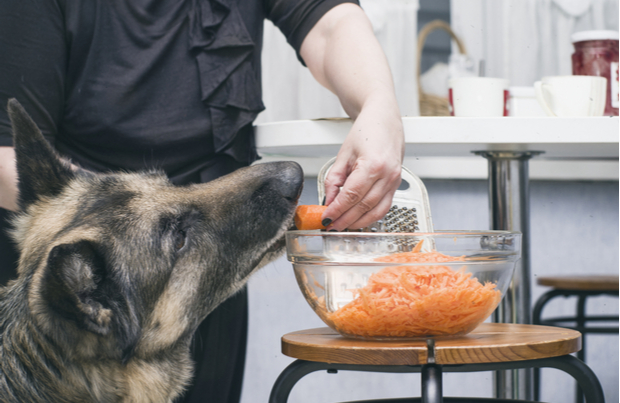
Carrots are an incredible vegetable, both for humans and dogs. Your dog can eat them cooked or raw. Carrots contain plenty of healthy compounds, including vitamins C, A, and B6. If your dogs like crunchy treats, giving them raw baby carrots is a great idea. However, a lot of fiber can be hard for dogs to digest, so don’t give them too many raw vegetables. You can give your dog cooked carrots, as well. Since cooked carrots are easier to digest, your dog can have a larger amount without any digestion issues.
3. Green Peas
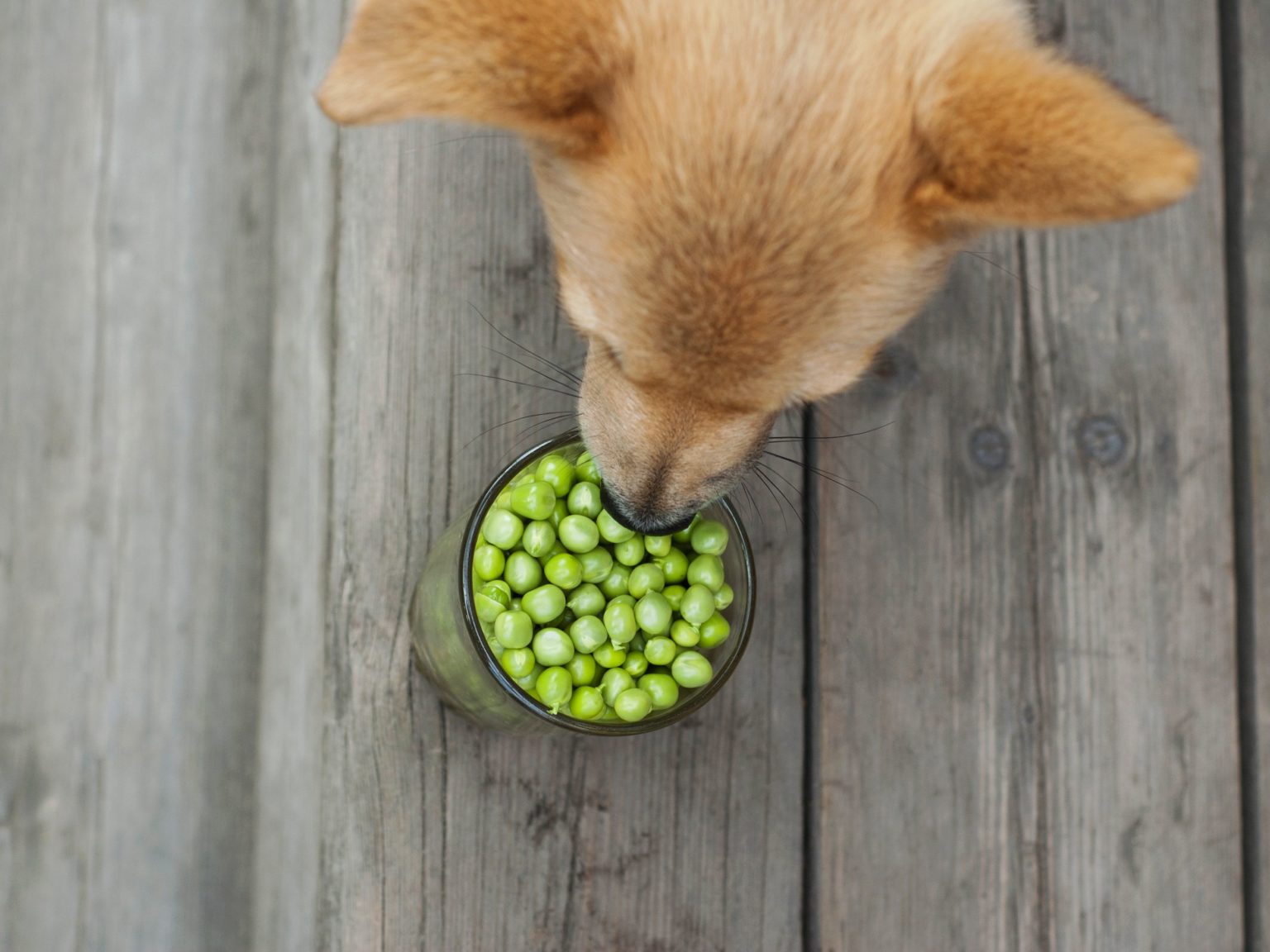
Peas are full of nutrients, and they’re quite a healthy treat for dogs. They are added to many dog foods because of the benefits they provide to canines. However, you can give your dog peas as a low-calorie treat, as well. Opt for fresh or frozen peas instead of the canned variety, as canned peas can contain a lot of sodium.
4. Sweet Potatoes
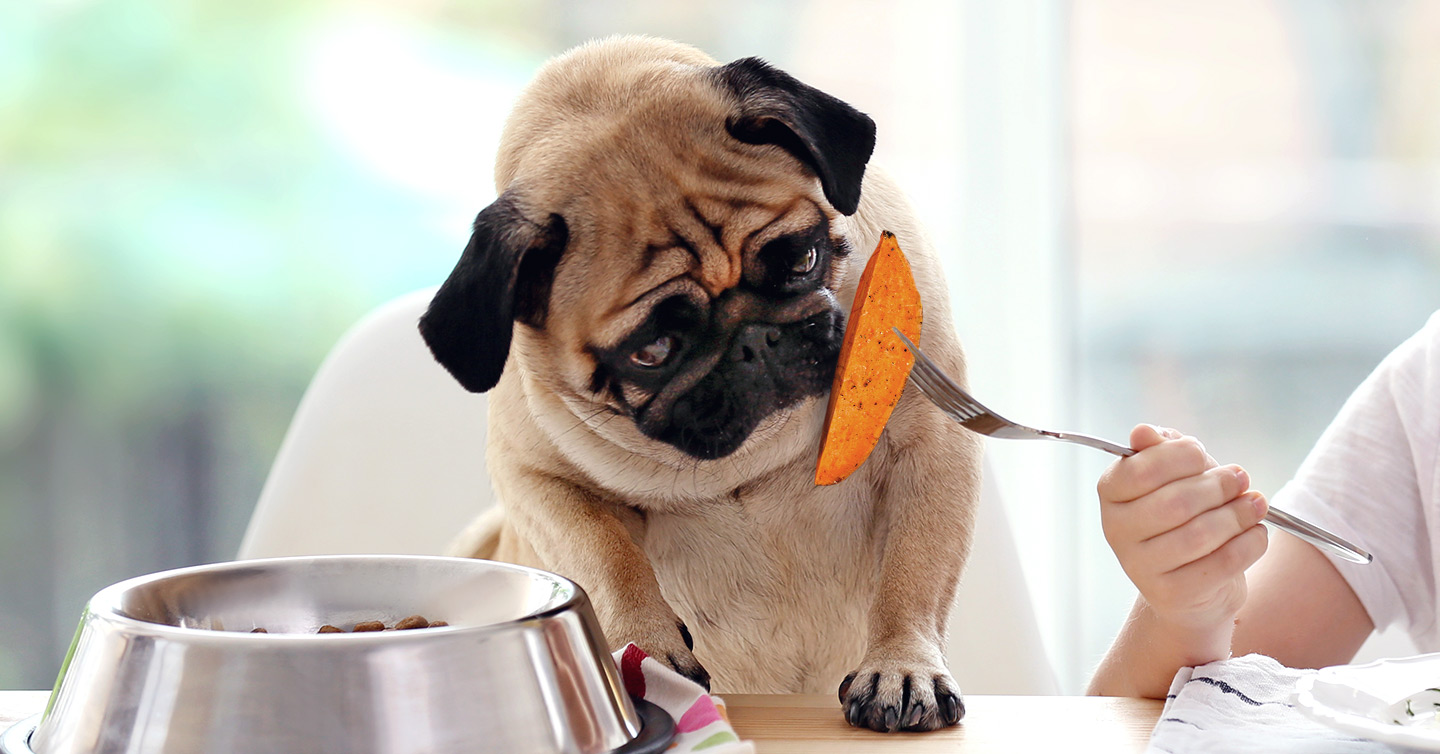
You should avoid giving your dogs white potatoes, as they are quite starchy and don’t provide many nutrients. Instead, opt for small amounts of sweet potatoes. When cooked, sweet potatoes are easy to digest, and they’re rich in vitamins and minerals. They are rich in vitamin A, which is amazing for eye health and the immune system. Still, make sure to give your dogs sweet potatoes in moderation, as too much vitamin A can harm canines and cause bone and muscle problems.
5. Broccoli
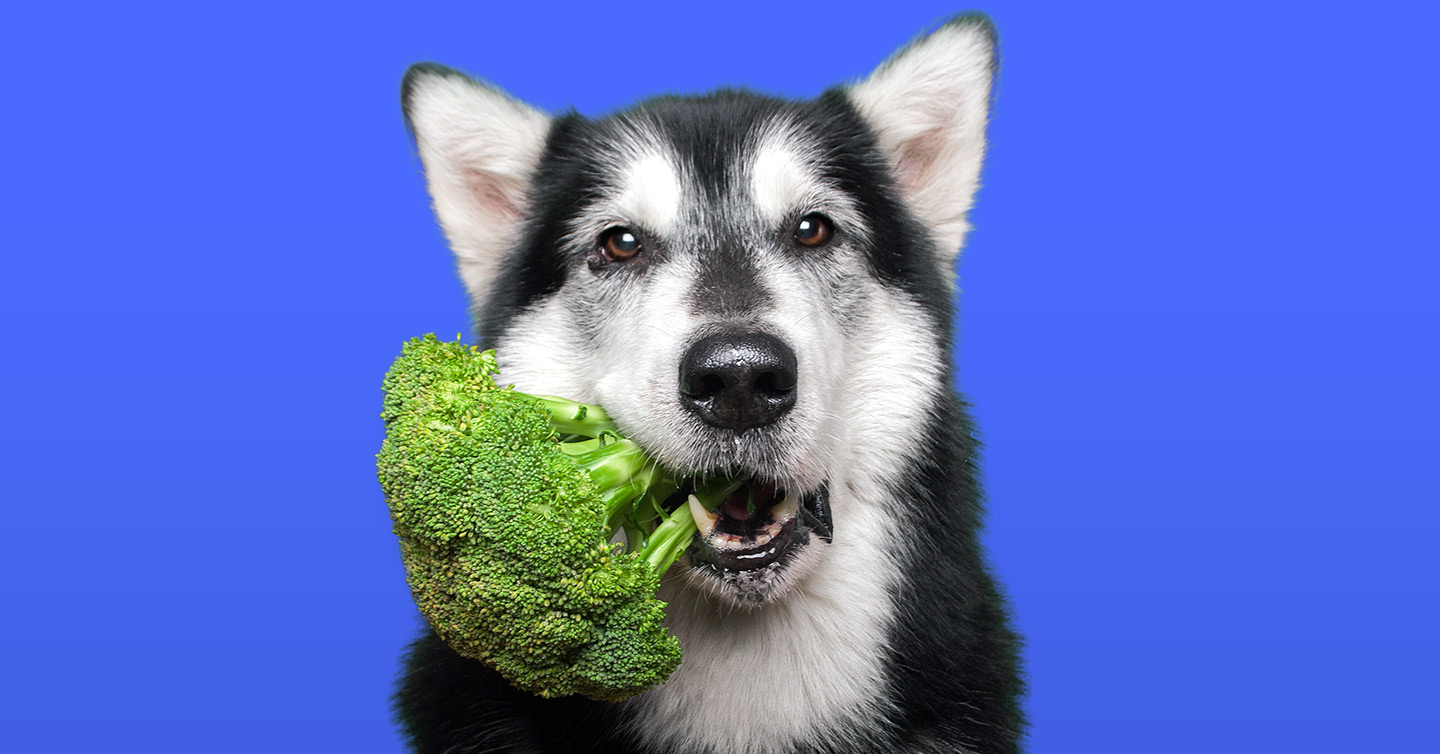
Many dogs don’t like the taste of broccoli. However, if your dogs tolerate or even love it, broccoli is a great food to give them on occasion. This vegetable is rich in vitamins and low in calories, making it a perfect snack. However, you should limit how much broccoli your dogs can have, as too much of it can cause gastrointestinal irritation. Additionally, don’t give your dogs any food that you prepare with onion and garlic. These vegetables contain harmful compounds that cause vomiting and diarrhea. Additionally, they can damage red blood cells, leading to anemia in dogs.
6. Pumpkin
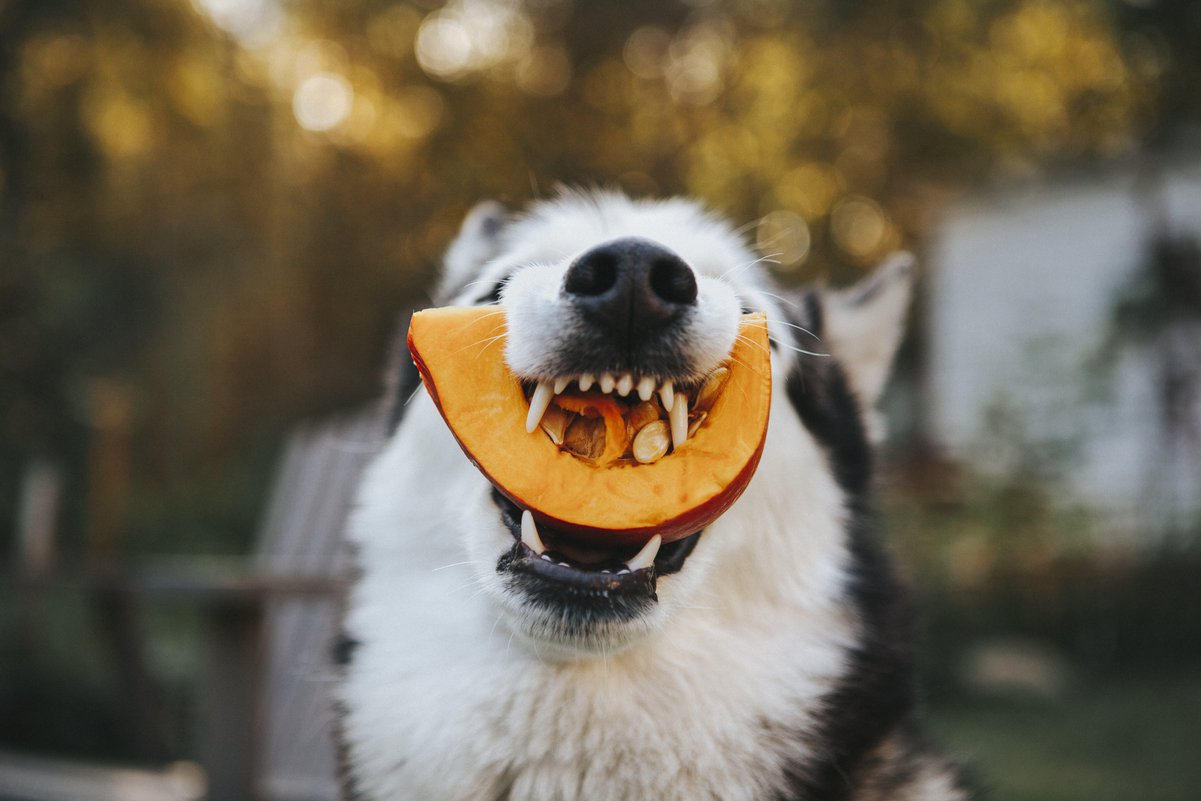
Pumpkin is an amazing vegetable to give to your dogs if they like a sweet treat. They are a good source of vitamin A and contain plenty of fiber. Unlike the fiber in raw carrots, fiber from pumpkins is quite easy for dogs to digest. Additionally, it can aid with any digestive issues your dog may be facing and keep the gastrointestinal tract moving. However, only give your dog the flesh of a pumpkin, and avoid the skins and seeds.
7. Healthy Oils
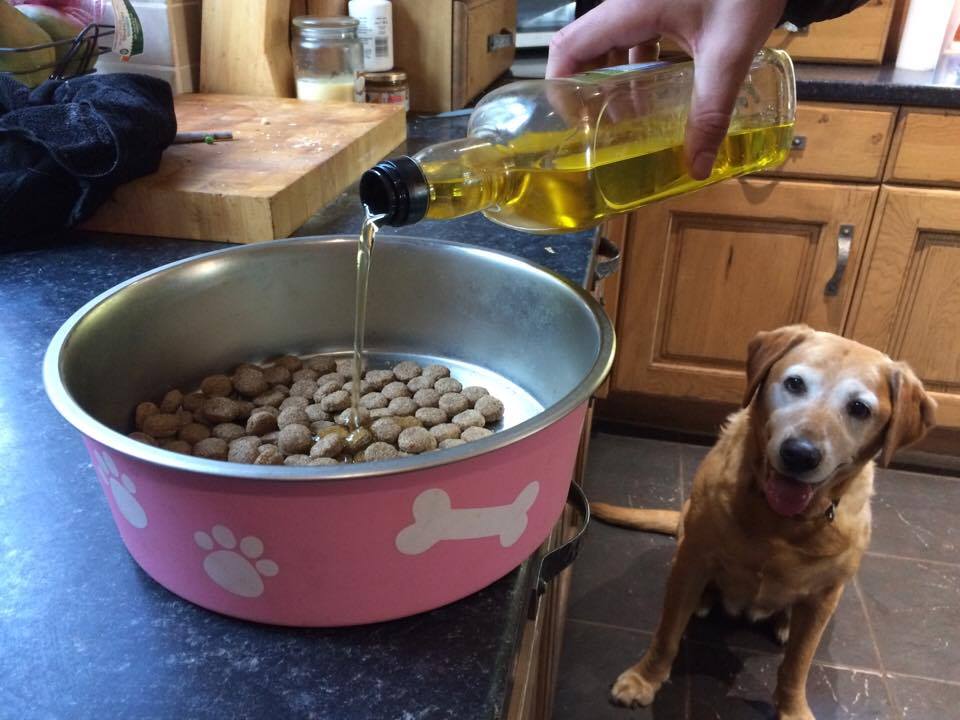
You shouldn’t give your dog foods that are too high in oil. However, giving small amounts of healthy oils, such as coconut or flaxseed oil, can be quite beneficial. These oils are a great source of omega-3 and omega-6 fatty acids. Additionally, they aid in weight loss, provide higher energy levels, and they can even combat bad breath in canines. Still, only give your dog small amounts of oil daily, and make sure you use high-quality brands.
8. Bread
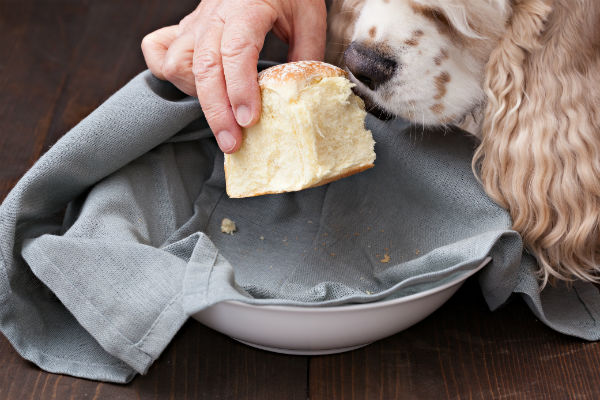
Although bread does not contain many healthy nutrients, it’s a safe occasional treat for your dog. You can give your dog both plain, white bread and a whole-grain variety. However, make sure it doesn’t contain ingredients such as raisins or garlic. Additionally, make sure there’s no cocoa in the bread, as many companies add it to whole-grain bread to make it darker. Keep the bread as plain as possible, and don’t give it to your dog if you’ve added butter, salt, or other toppings to it.
9. Rice and Pasta
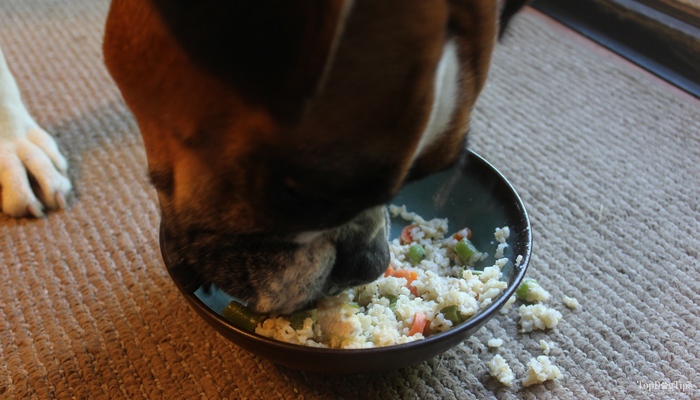
It’s safe to give small amounts of rice and pasta to your dog. They’re great energy sources and are quite easy to digest. However, only give plain pasta without sauce to your pup. Alternatively, go for white rice with boiled chicken. This meal is easy on the stomach and a soothing option if your dog’s suffering from gastrointestinal problems.
10. Peanut Butter
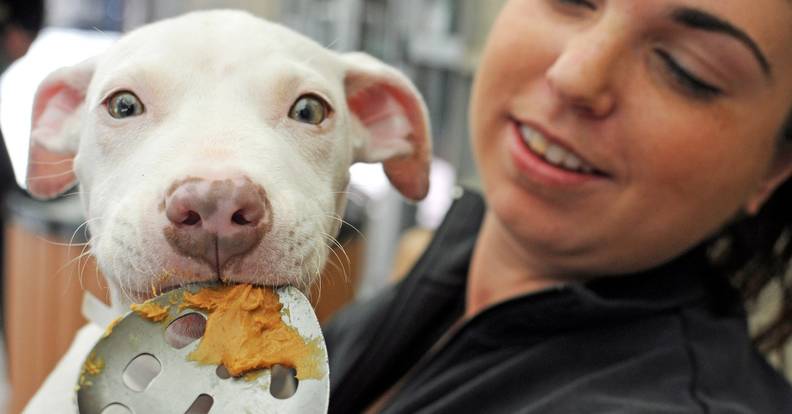
If you have dogs, chances are they love peanut butter. Luckily, this treat is just as nutritious as it is delicious. It’s difficult to chew, as well, so it will keep your dog occupied for a while. Peanut butter is an amazing source of fiber and protein, but make sure to get one that only contains peanuts. Many brands add salt, sugar, and sweeteners to their peanut butter, which can harm your pup.
11. Nuts
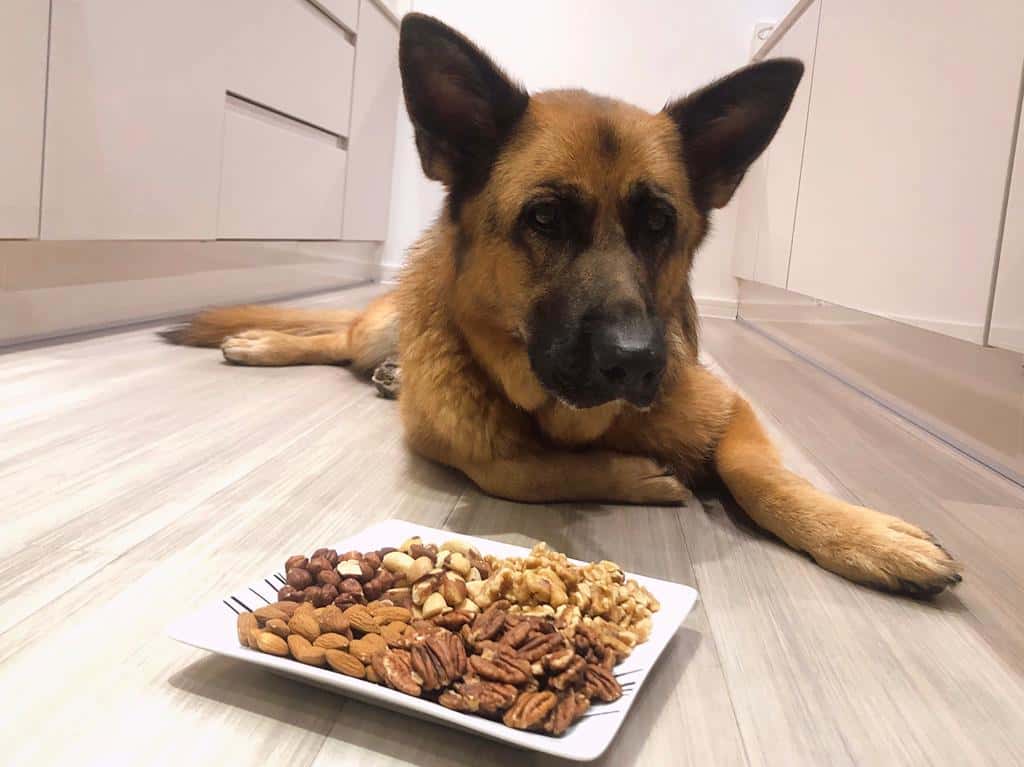
Advertisements
Certain nuts can be excellent dog treats when given in moderation. You should only give your pup unsalted nuts and limit them to one or two per day. Roasted almonds and cashews are great options, while macadamia nuts should be avoided. Macadamias contain a substance that’s poisonous for dogs and can cause tremors, hypothermia, muscle weakness, and vomiting.
12. Cooked Eggs
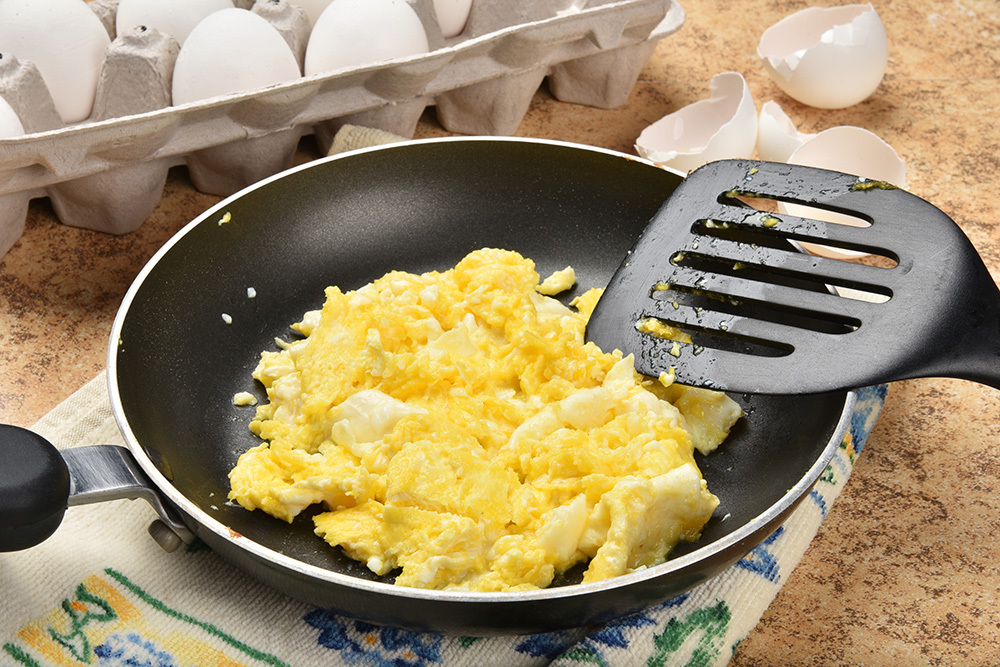
Never give your dog raw eggs, as they can contain salmonella. However, giving them cooked eggs in moderation is a great idea. Eggs contain plenty of protein, vitamins, and minerals, and they can be an amazing natural source of energy for dogs.
13. Cheese

When given in small quantities, cheese can be quite healthy for some dogs. It provides a lot of healthy fats and protein. However, if your pup has gastrointestinal problems often, avoid giving them products that contain lactose, as it can cause diarrhea.
14. Greek Yogurt and Kefir
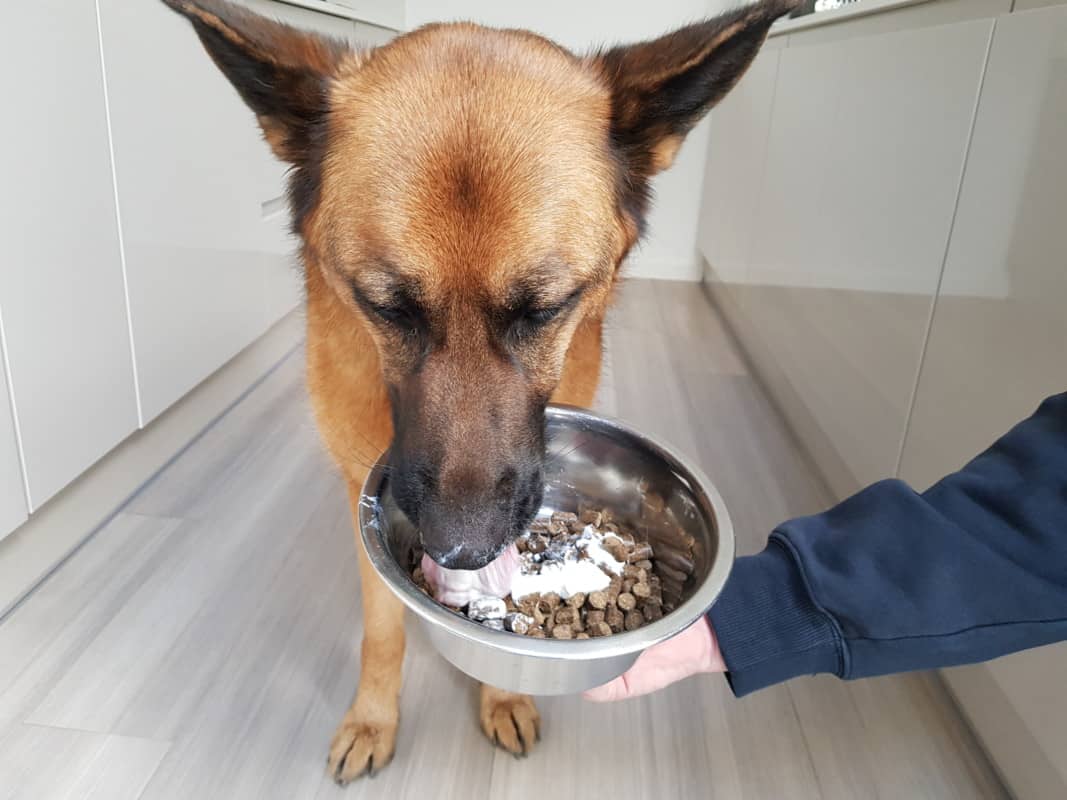
Kefir and Greek Yoghurt are high in probiotics, making them an amazing dog treat. They contain calcium, magnesium, biotin, and vitamins B12 and K2. Additionally, these foods are a great source of enzymes and folate. However, only give your dog unsweetened yogurt, as the sweetened kinds contain a lot of added sugar.
15. Fish
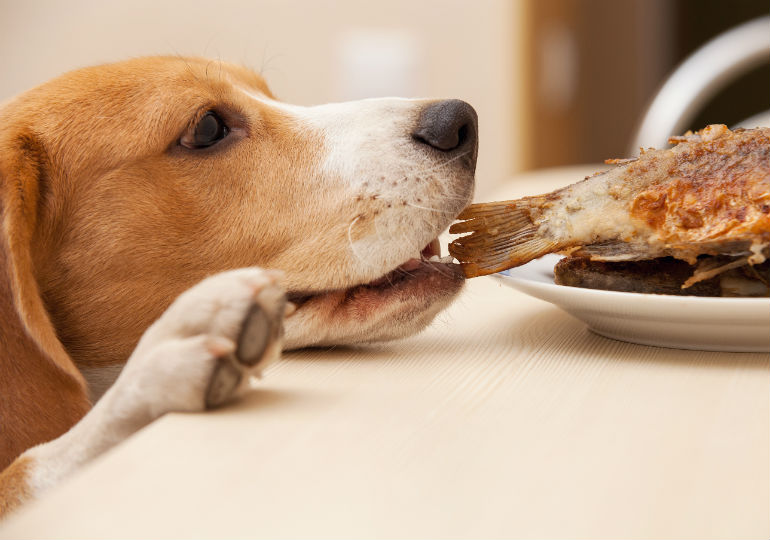
Cooked, boneless tuna and salmon are a great source of protein for your pup. Additionally, they contain omega-3 fatty acids, which reduce inflammation and aid in fur health. However, never give your dog raw salmon, as it can contain a parasite that is potentially fatal when ingested.
16. Beef
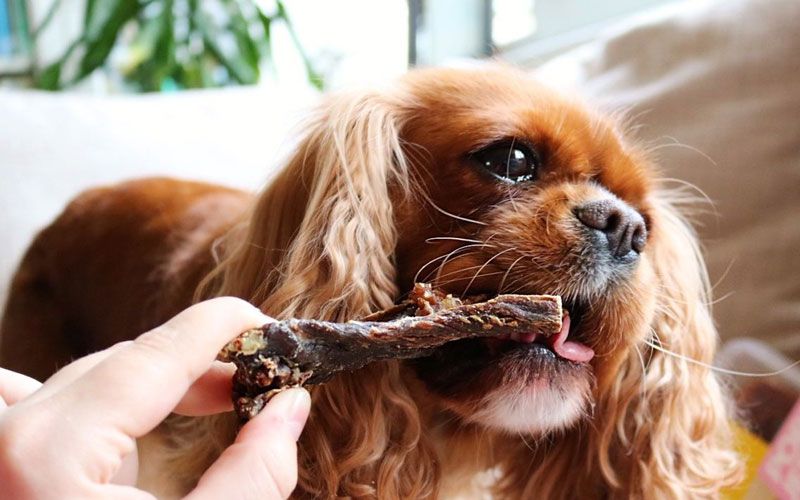
Lean beef is quite common in dog foods, and for a good reason. It contains plenty of vitamins and minerals that aid in the overall health of canines. Additionally, it’s a great source of protein. If you’re cooking beef for your pup, make sure it’s cooked thoroughly, and don’t add any salt, sauces, or seasonings.
17. Chicken
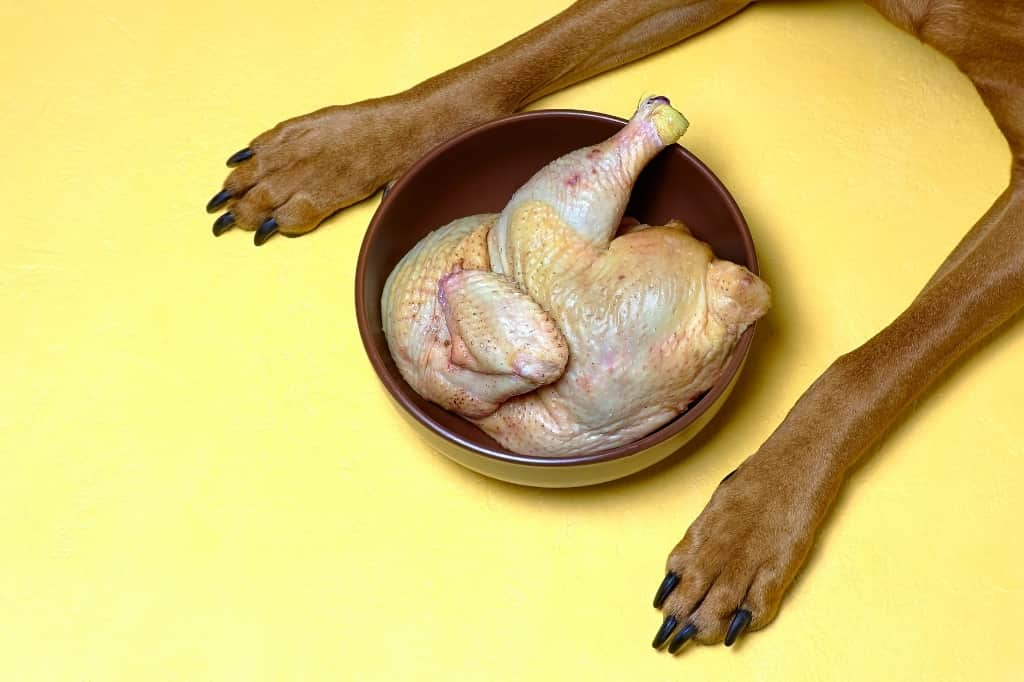
Chicken is another common ingredient found in dog food. It’s easy for dogs to digest, and it provides them with plenty of lean protein. If you’re making chicken for your dog, cook it with a vegetable, such as carrots or sweet potato. However, chicken is more likely to contain salmonella than other meats. That’s why you should make sure the meat is fully cooked, and never give your dog raw chicken.
18. Pork
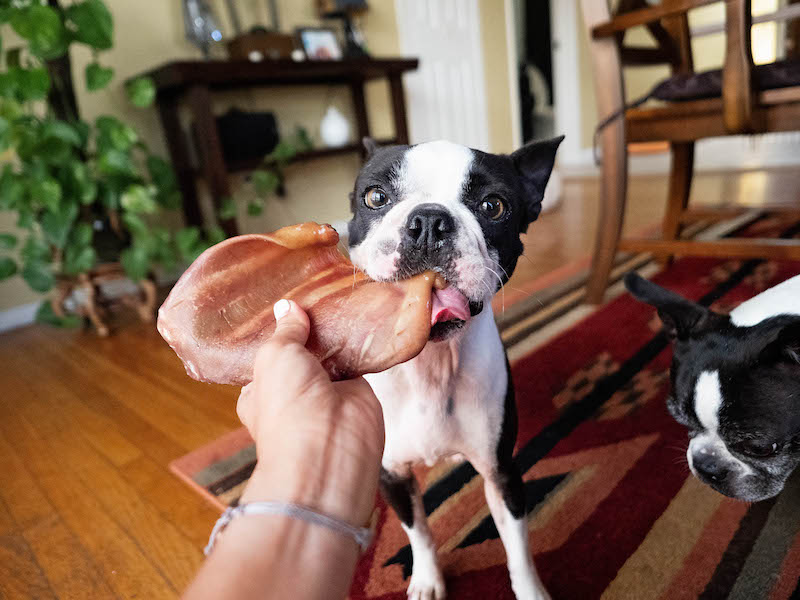
Pork is a great occasional treat for your pup. Fully cooked pork without any seasonings and sauces is the best option. However, avoid processed pork, such as bacon and ham. Processed meats contain too much sodium, making them unhealthy for both dogs and humans
19. Popcorn
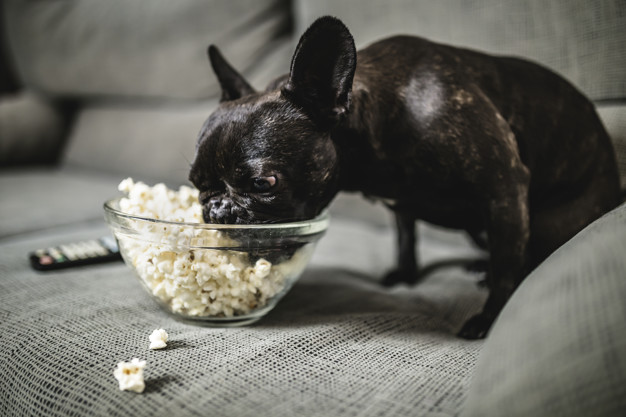
If your dog wants some of your popcorn during movie night, feel free to give it to them. However, make sure not to season the popcorn too much. Alternatively, put the popcorn meant for your pup in a separate bowl and give them to your dog unseasoned. Make sure the kernels are fully popped, as the unpopped kernels can be a choking hazard.
What You Should Avoid
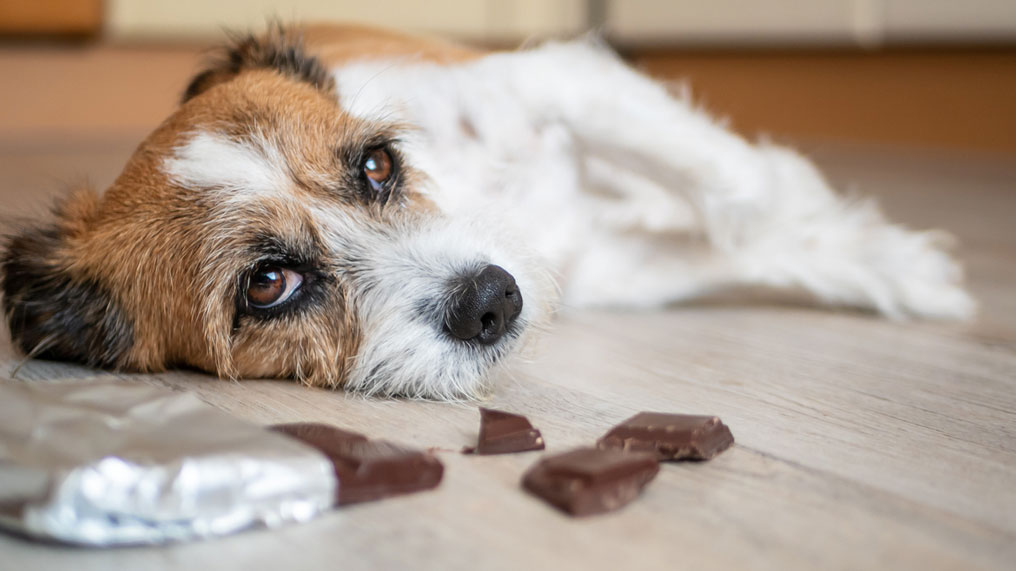
The one food you should never give to your dog is chocolate. Although it’s a great occasional treat for humans, chocolate is extremely harmful to dogs. It contains caffeine and theobromine, stimulants that can lead to fatal complications in canines. Additionally, some chocolates contain an artificial sweetener called Xylitol, which triggers seizures and decreases blood sugar in dogs.
In Conclusion
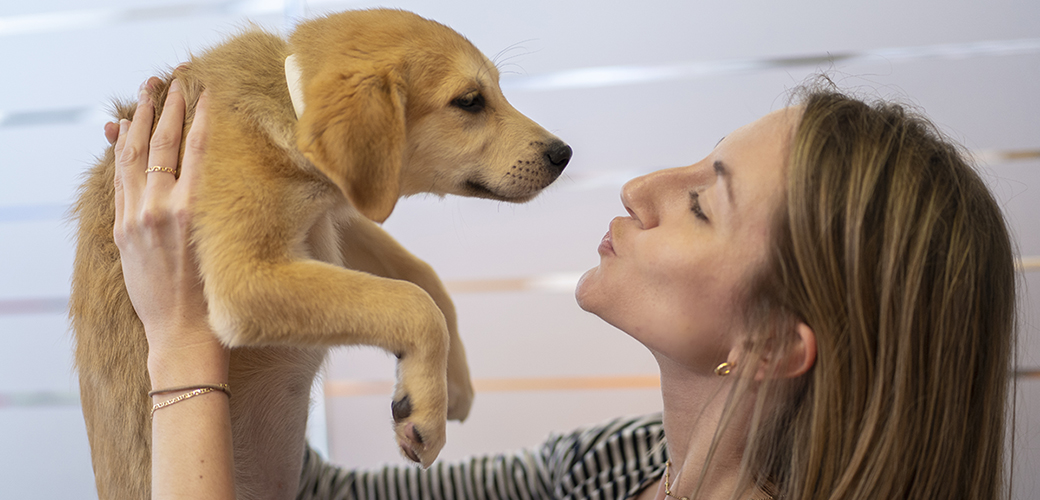
Advertisements
You love your dog, and you want to make sure they’re as healthy as possible. By giving them these 19 foods in moderation, you’ll ensure your pup gets their vitamins and minerals from the best sources. They’ll surely love at least a few, if not all, of the foods mentioned above.


